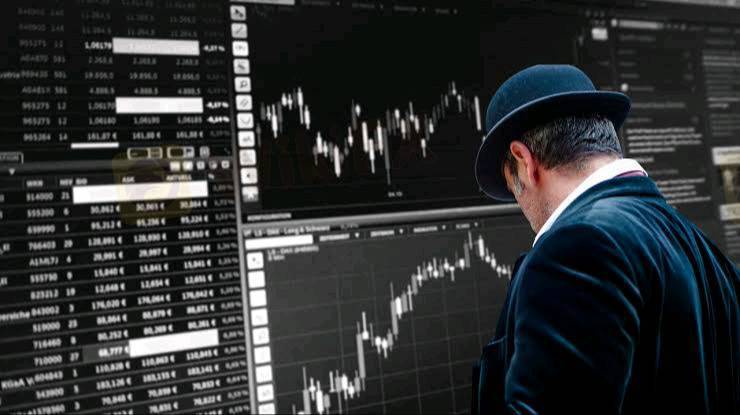
2025-01-30 05:32
업계Theoretical Perspectives on Geopolitical Risk
#firstdealofthenewyearFateema
Geopolitical risk is a critical factor influencing financial markets, including foreign exchange (forex) and oil prices. This post explores the theoretical perspectives on geopolitical risk and market reactions, offering a foundation for understanding the complex dynamics at play.
Defining Geopolitical Risk
Geopolitical risk refers to the potential adverse effects of political, social, or economic events on the stability and performance of financial markets. This risk is often categorized into three main dimensions:
International relations: Political or military conflicts between nations, sanctions, and diplomatic tensions can all contribute to geopolitical risk.
Domestic politics: Internal political instability, regime changes, or social unrest can also introduce uncertainties and risks.
Economic policies: Government decisions on fiscal or monetary policies, trade agreements, or regulatory changes can create uncertainties that influence market dynamics.
Theoretical Frameworks for Understanding Market Reactions
Several theoretical frameworks help shed light on how geopolitical risk influences forex and oil markets:
Risk aversion theory: This theory posits that investors become more risk-averse during periods of heightened geopolitical risk, causing them to shift their investments toward safe-haven assets and away from riskier ones.
Efficient market hypothesis: According to this hypothesis, markets rapidly incorporate all publicly available information, including geopolitical events, into asset prices. As a result, traders cannot consistently outperform the market based on such information.
Herding behavior and market sentiment: Some researchers argue that traders' emotional responses to geopolitical events and their tendency to follow the crowd can lead to market overreactions and price fluctuations.
The Interplay between Geopolitical Risk and Market Behavior
Geopolitical risk can influence market behavior through several channels:
Risk premium: As geopolitical risk rises, investors may demand a higher return on their investments to compensate for the increased uncertainty. This can affect asset prices and exchange rates.
Capital flows: Political instability or conflict can lead to capital flight, as investors move their money to safer locations, impacting forex markets.
Economic growth: Geopolitical risk can dampen economic growth, particularly in affected regions, which may lead to reduced demand for oil and other commodities.
Geopolitical risk plays a significant role in shaping market behavior and influencing forex and oil prices. Understanding the theoretical perspectives on this phenomenon can help traders, investors, and policymakers anticipate and respond to the challenges posed by geopolitical events. Throughout the upcoming case studies, we will examine real-world examples of these dynamics and their implications for financial markets.
좋아요 0
FX1153847518
Trader
인기있는 콘텐츠
시장 분석
투자주체별매매 동향
시장 분석
유로존 경제 쇠퇴 위기 직면
시장 분석
국제 유가는 어디로
시장 분석
미국증시 레버리지(Leverage)·인버스(Inverse)형의 ETF, 최근 사상 최대 신
시장 분석
투기장 된 원유 ETL...첫 투자위험 발령
시장 분석
RBNZ 양적완화 확대
포럼 카테고리

플랫폼

전시회

IB

모집

EA

업계

시세

인덱스
Theoretical Perspectives on Geopolitical Risk
 방글라데시 | 2025-01-30 05:32
방글라데시 | 2025-01-30 05:32#firstdealofthenewyearFateema
Geopolitical risk is a critical factor influencing financial markets, including foreign exchange (forex) and oil prices. This post explores the theoretical perspectives on geopolitical risk and market reactions, offering a foundation for understanding the complex dynamics at play.
Defining Geopolitical Risk
Geopolitical risk refers to the potential adverse effects of political, social, or economic events on the stability and performance of financial markets. This risk is often categorized into three main dimensions:
International relations: Political or military conflicts between nations, sanctions, and diplomatic tensions can all contribute to geopolitical risk.
Domestic politics: Internal political instability, regime changes, or social unrest can also introduce uncertainties and risks.
Economic policies: Government decisions on fiscal or monetary policies, trade agreements, or regulatory changes can create uncertainties that influence market dynamics.
Theoretical Frameworks for Understanding Market Reactions
Several theoretical frameworks help shed light on how geopolitical risk influences forex and oil markets:
Risk aversion theory: This theory posits that investors become more risk-averse during periods of heightened geopolitical risk, causing them to shift their investments toward safe-haven assets and away from riskier ones.
Efficient market hypothesis: According to this hypothesis, markets rapidly incorporate all publicly available information, including geopolitical events, into asset prices. As a result, traders cannot consistently outperform the market based on such information.
Herding behavior and market sentiment: Some researchers argue that traders' emotional responses to geopolitical events and their tendency to follow the crowd can lead to market overreactions and price fluctuations.
The Interplay between Geopolitical Risk and Market Behavior
Geopolitical risk can influence market behavior through several channels:
Risk premium: As geopolitical risk rises, investors may demand a higher return on their investments to compensate for the increased uncertainty. This can affect asset prices and exchange rates.
Capital flows: Political instability or conflict can lead to capital flight, as investors move their money to safer locations, impacting forex markets.
Economic growth: Geopolitical risk can dampen economic growth, particularly in affected regions, which may lead to reduced demand for oil and other commodities.
Geopolitical risk plays a significant role in shaping market behavior and influencing forex and oil prices. Understanding the theoretical perspectives on this phenomenon can help traders, investors, and policymakers anticipate and respond to the challenges posed by geopolitical events. Throughout the upcoming case studies, we will examine real-world examples of these dynamics and their implications for financial markets.
좋아요 0
나 도 댓 글 달 래.
제출
0코멘트

댓글이 아직 없습니다. 첫 번째를 만드십시오.

제출
댓글이 아직 없습니다. 첫 번째를 만드십시오.